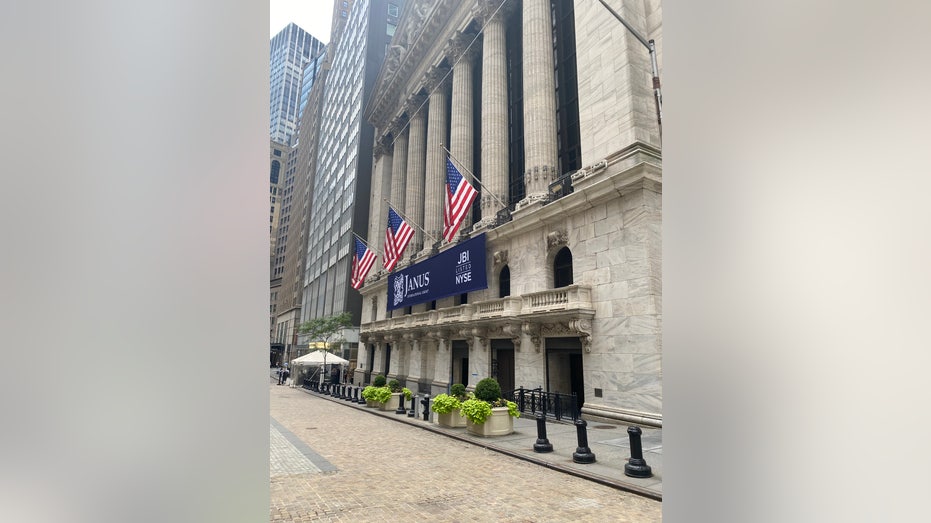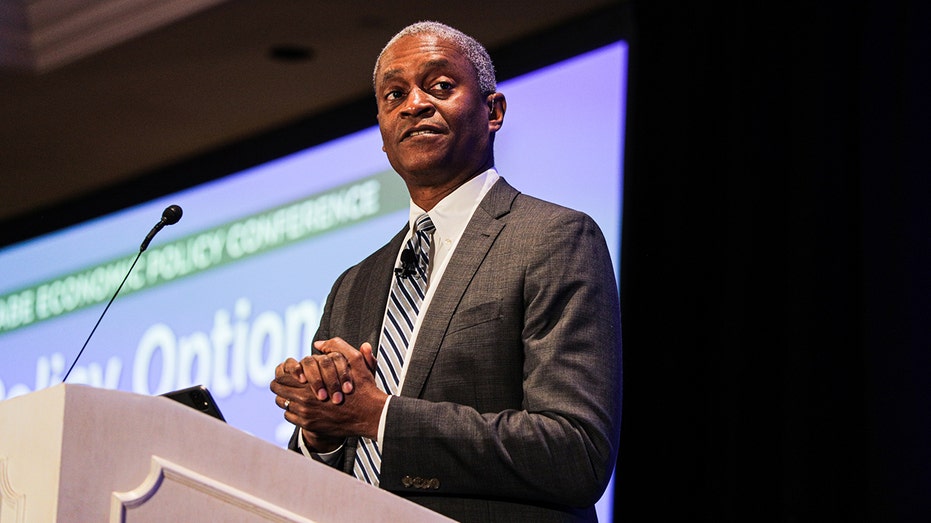NYSE senior market strategist on 'bad' inflation data and what it means for future Fed action
Inflation numbers hotter than expected
FOX Business’ Cheryl Casone reports on June’s Consumer Price Index released Wednesday, which revealed inflation now sits at a fresh 40-year high.
New York Stock Exchange Senior Market Strategist Michael Reinking argued on Wednesday that markets were "well-prepared" for the headline inflation number released earlier, but stressed the data was "bad."
Speaking with Fox News Digital, Reinking also noted what the latest inflation data, which sits at a fresh 40-year high, means for the next moves of the Federal Reserve as central bank officials try to tame soaring inflation.
On Wednesday morning, the Labor Department said that the consumer price index, a broad measure of the price for everyday goods, including gasoline, groceries and rents, rose 9.1% in June from a year ago. Prices jumped 1.3% in the one-month period from May. Both figures were far higher than the 8.8% headline figure and 1% monthly gain forecast by Refinitiv economists.
The New York Stock Exchange on Wednesday, July 13, the day the June inflation data was released by the Labor Department. (FOX Business/Talia Kaplan ) The data marks the fastest pace of inflation since December 1981. INFLATION SURGES 9.1% IN JUNE, ACCELERATING MORE THAN EXPECTED TO NEW 40-YEAR HIGH "I think markets were pretty well-prepared for the headline number to be hotter than expected," Reinking told Fox News Digital, pointing to the price of gas in the middle of June, which he said was at its peak at the time. "We have seen gasoline prices come in over the last month," he noted. Last month, gas prices hit records with the national average above $5 a gallon. On Wednesday, the national average for a gallon of gas was $4.63, about 40 cents lower compared to the month before when it was more than $5 dollars, according to AAA. Reinking argued that the so-called core prices data, which exclude more volatile measurements of food and energy, presented a bit of a surprise. The Labor Department said that core prices climbed 5.9% from the previous year. Core prices also rose 0.7% on a monthly basis – higher than in April and May – suggesting that underlying inflationary pressures remain strong and widespread. "The core CPI was really where the issue was because we didn’t see any sort of deceleration within that data," Reinking said. "When you look at all of the different components, we were hoping to see some easing in used car pricing, the automobiles, potentially apparel given what we’ve heard from retail companies and we didn’t see any of that." The worse-than-expected report is expected to have major implications for the Federal Reserve and will likely solidify a series of aggressive rate hikes in an effort to curb prices. Policymakers already raised the benchmark interest rate by 75-basis points last month for the first time since 1994 and have confirmed that a similarly sized increase is on the table in July. Reinking argued that with inflation running even hotter than economists expected in June, Wall Street is now ramping up the odds of a mega-sized, 100-basis point hike in July. The market strategist noted that the Fed had indicated that it wants to see inflation data "significantly come down for multiple months" before taking "their foot off the accelerator." He argued that the data released on Wednesday "resets the clock" because it revealed there was no "deceleration." Reinking went on to argue that while Wall Street "had widely expected the Fed to go another 75-basis points at the end of July," Wednesday’s data opens the door to a potential 100-basis point rate increase. Raphael Bostic, president and chief executive officer of the Federal Reserve Bank of Atlanta, speaks during the National Association of Business Economics (NABE) economic policy conference in Washington, D.C, U.S., on Monday, March 21, 2022. (Valerie Plesch/Bloomberg via Getty Images / Getty Images) He pointed to the comment from Atlanta Federal Reserve Bank President Raphael Bostic earlier on Wednesday, saying that "everything is in play" when asked about the prospect of the central bank raising interest rates by a full percentage point later this month. About 38% of traders are now pricing in the chances of a 100-basis point increase later this month, according to the CME Group's FedWatch tool, which tracks trading. Still, the Fed is in a precarious situation as it walks the line between cooling consumer demand and bringing inflation closer to its 2% target without inadvertently dragging the economy into a recession. Hiking rates tends to create higher rates on consumer and business loans, which slows the economy by forcing employers to cut back on spending. When asked if he believes the Fed can successfully engineer an elusive soft landing, Reinking told Fox News Digital "it’s threading a needle." LARRY SUMMERS WARNS INFLATION UNLIKELY TO FALL WITHOUT ‘SIGNIFICANT ECONOMIC DOWNTURN’ "I think there is a possibility," he continued. "We’re coming from a pretty good place from an economic perspective, especially relative to the rest of the globe… so there is a possibility, but it’s going to be a tight squeeze." Reinking also noted that "there is a possibility" that the data released on Wednesday "was the peak inflation print," especially when looking at "what commodities markets have done over the last few months." He also warned that investors are likely "going to continue to see quite a bit of volatility as the markets kind of deal with this ebb and flow of economic data and the path of Fed policy going forward." Hennion & Walsh Asset Management president and CIO Kevin Mahn analyzes Wall Street’s volatile day on ‘The Claman Countdown.’ Reinking noted that the U.S. is "clearly in an economic slowdown." "The bigger question from here is how deep and how prolonged is that slowdown going to be and inflation and the Federal Reserve and their reaction to inflation is going to play a big part in how long that protraction is," he continued. Reinking also revealed what he believes is the "big concern" in markets right now. "The concern that markets have is that the Fed is going to magnify an initial policy mistake by not reacting to inflation data early enough and then are now going to have to tighten into an already slowing economy hence magnifying that and creating a bigger slowdown," he explained. Odeon Capital Group financial strategist previews the second quarter earnings of Wall Street’s financial titans on ‘The Claman Countdown.’ Reinking spoke with Fox News Digital as second quarter earnings season kicks off with JPMorgan Chase, Morgan Stanley, First Republic Bank, Cintas and Conagra Brands leading earnings before the market open on Thursday. He argued that financials "sit at a very good spot to understand kind of what’s happening from a macro perspective." "One of the big keys, I think, that we are going to see in this quarter is whether banks actually start to increase provisions and reserves for loan losses going forward," he added. "As we’re expecting a slowdown, we are kind of reversing that course of reserve runoff that we’ve seen over the last year," Reinking went on to note. "Now they [banks] are going to have to start building those reserves again to prepare for a more difficult credit environment." GET FOX BUSINESS ON THE GO BY CLICKING HERE On a more general note, Reinking argued that if management teams start to cut guidance "and the market can get comfortable with that guidance being somewhat more conservative, that could help things stabilize here in the near-term." FOX Business’ Megan Henney and Breck Dumas contributed to this report. Source: Read Full Article
Best sectors to buy in a recessionary environment.

Big bank Q2 earnings will be ‘good, bad and ugly’: Dick Bove


